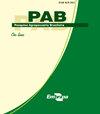SCS417 Monalisa苹果采后成熟度、1-甲基环丙烯处理和贮藏气氛对贮藏性的影响
IF 0.7
4区 农林科学
Q3 AGRICULTURE, MULTIDISCIPLINARY
引用次数: 0
摘要
摘要本研究的目的是确定‘SCS417 Monalisa’苹果果实的贮藏性对采收成熟度、1-甲基环丙烯(1-MCP)处理和贮藏气氛的响应。在22°C下,在2个月、4个月、6个月和8个月加上1天或7天的保质期后,对水果的质量进行了评估。与空气贮藏相比,控制气氛(CA)和1-MCP (1.0 μL -1)处理减少了果实乙烯的产生和呼吸,防止了果实的快速软化,抑制了类似烫伤的症状、果肉褐变、开裂和真菌腐烂的发生。1-MCP和CA的结合在硬度保持和减少生理障碍的发生率方面提供了附加的好处。CA和/或1-MCP增加了水果发生皱纹性皮肤疾病的风险。果肉硬度和酸度的损失以及所有生理失调和腐烂的发展在晚采收的水果中更高。考虑到果皮硬度达到53 n所需的时间,‘SCS417 Monalisa’苹果在低温条件下的贮藏期约为2个月,在低温条件下的贮藏期为6 ~ 8个月。在没有1-MCP的情况下,‘SCS417 Monalisa’苹果果实在低温条件下长期贮藏的限制因素是生理障碍和真菌腐烂的发展。本文章由计算机程序翻译,如有差异,请以英文原文为准。
Storability of 'SCS417 Monalisa' apple as affected by harvest maturity, 1-methylcyclopropene treatment, and storage atmosphere
Abstract The objective of this work was to determine the storability of 'SCS417 Monalisa' apple fruit in response to harvest maturity, 1-methylcyclopropene (1-MCP) treatment, and storage atmospheres. Fruit quality was evaluated after two, four, six, and eight months plus one day or seven days in shelf life at 22°C. The controlled atmosphere (CA) and 1-MCP (1.0 μL L-1) treatments reduce fruit ethylene production and respiration, prevent rapid softening, and inhibit the incidence of scald-like symptoms, flesh browning, cracking, and fungal decay, in comparison with air storage . The combination of 1-MCP and CA provides additive benefits in firmness retention and in the reduction of the incidence of physiological disorders. CA and/or 1-MCP increase the risk of fruit developing wrinkly skin disorder. The loss of flesh firmness and acidity and the development of all physiological disorders and decay are higher in late-harvested fruit. The storage life of 'SCS417 Monalisa' apple is about two months in cold air and from six to eight months in cold CA, considering the time necessary to reach a flesh firmness of 53 N. The limiting factor for the long-term storage of 'SCS417 Monalisa' apple fruit under CA without 1-MCP is the development of physiological disorders and fungal decay.
求助全文
通过发布文献求助,成功后即可免费获取论文全文。
去求助
来源期刊

Pesquisa Agropecuaria Brasileira
农林科学-农业综合
CiteScore
1.20
自引率
0.00%
发文量
45
审稿时长
9-18 weeks
期刊介绍:
Pesquisa Agropecuária Brasileira – PAB – is issued monthly by Empresa Brasileira de Pesquisa Agropecuária – EMBRAPA, affiliated to Ministry of Agriculture, Livestock and Food Supply. PAB publishes original scientific-technological articles on Plant Physiology, Plant Pathology, Crop Science, Genetics, Soil Science, Food Technology and Animal Science.
Its abbreviated title is Pesq. agropec. bras., and it should be used in bibliographies, footnotes, references and bibliographic strips.
 求助内容:
求助内容: 应助结果提醒方式:
应助结果提醒方式:


